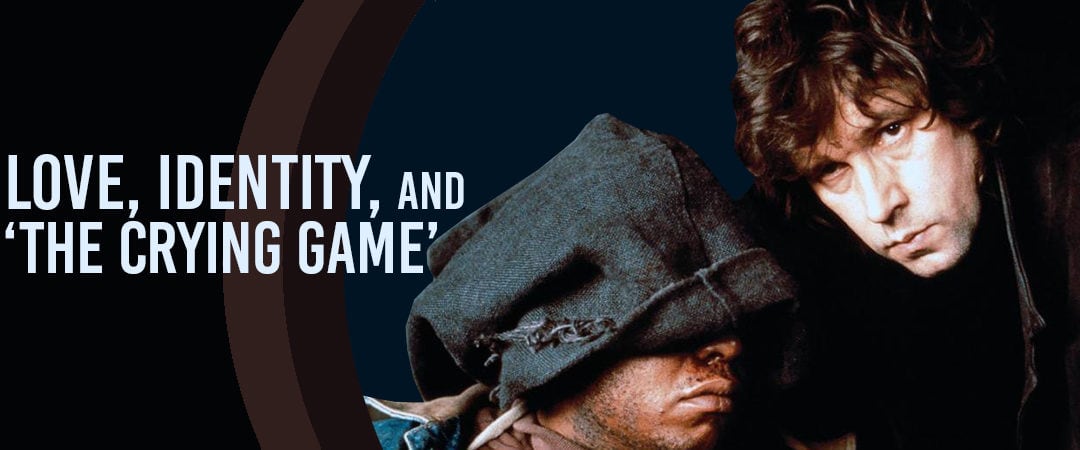
In the niche world of alternative film posters collectibles, the most visible and profitable of posters are those based on existing properties – films, television, music, videogames, and comic books. Those narratives within the zeitgeist of the ever-changing popular culture landscape.
Does a film like Neil Jordan’s 1992 Academy Award-winning film The Crying Game fit into that niche? A quick summary of the film – in Northern Ireland the IRA kidnap British soldier Jody. Their goal is to trade Jody for the release of an IRA soldier currently jailed in England.
While being held, Jody is watched over by Fergus, an IRA foot soldier. The two form a strange bond. Jody tells Fergus that if anything happens to him he has to promise to protect Dil, his girlfriend back home in London. Fergus agrees. Inevitably Jody is killed and the IRA hideout destroyed, with Fergus the only survivor. Fergus escapes to London where he tracks down Dil. At this point, the film has been a gritty political drama focusing on the people that carry out the goals of angry men. Fergus may be an active participant in the IRA, but through the first act of the film with British soldier Jody we can see that he is also kind and able to connect to the humanity in his captive despite their differences.
Once Fergus hits London and meets Dil, his goal of keeping his promise to Jody is countered with his attraction to the dead soldier’s girlfriend. Fergus and Dil’s relationship grow into the physical. It’s in a bedroom tryst that Dil reveals her true gender – she is a man. Repulsed and confused the brute in him takes over and Fergus lashes out at her. He returns the following day to apologize. Fergus’s feelings for her real, however, conflicted.
This is the core of the film – love is love. Attraction is attraction. Here we have this hardened yet kind IRA soldier who falls in love with someone who turns out to be a man, and we watch as this relationship develops. He may struggle with the gender issue but Fergus’s love stays true to Dil throughout the rest of the film. There is never any discussion about whether Fergus is gay, the film treats labels as a non-issue. It’s a beautiful thing and perhaps I feel for The Crying Game because I understand, to some extent, what Fergus and Dil are struggling with. My own story is far less dramatic, leaning towards suburban. In my teens and twenties, I worked in restaurants. Dishwasher. Busboy. Waiter. At that point, I had been assumed gay by quite a few people in high school and college because of my friendliness which I took that as a compliment, but now gay men were approaching me on a regular basis in the restaurant and bar assuming I was homosexual. It was a strange experience, but each time I did my best to politely say thanks, but I wasn’t gay.
There was always that feeling that maybe these guys were seeing something in me I hadn’t – like that friend in high school you know is gay but doesn’t come out until his college years. Was I gay and didn’t realize it? Was I suppressing something, ignoring a part of my natural self? Alongside the fact that women didn’t seem that interested in me romantically, me being gay seemed like an answer I hadn’t explored. There were male friends I looked forward to spending time with and anytime a new waiter was hired I made sure to invite him out for drinks or bring him along when the staff went out after hours. There were men I found attractive. Were these feelings a sign of that strain of love that pulls two people together? What was I missing? I didn’t know.
What wasn’t there was the physical attraction. That opening sign of love. There wasn’t an urge to hold hands or touch. To kiss. To grow together. I had never dreamed of building a family with a man, but at that point in my life, my own future was a fog. For Fergus, he fell in love with Dil who he assumed was a woman, but once her gender was out as male, he couldn’t see her any other way than as her – as Dil. It wasn’t a gender he was attracted to, but a person. A situation he had never thought possible, but here it was happening. What writer and director Neil Jordan explored in The Crying Game was this gut-level love, the kind that simply exists in the heart with no involvement from self-judgment and self-analysis.
In the current climate of limited edition posters where Star Wars, horror movies, and ‘80s nostalgia reigns, is there room for an illustrated print for an intimate and raw love story like The Crying Game? Is it even something that should be monetized? For a franchise like Star Wars, the barrage of posters and merchandise make sense. George Lucas constructed a universe fans want to live in, but without that being possible there is a desire to have that world live within their own in the form of posters, toys, coffee mugs, and shirts. Something to ignite emotional recall. How do you experience that film again? It can only be translated into another medium to create something tangible to hold.
The Crying Game isn’t a film made with action figures or any merchandise in mind, in fact, owning a copy of the film on whatever format you can is the only logical step. My desire to commission an artist to illustrate the film is not one of money but of that natural longing to reconnect with the film on an everyday level, to tend to the pedestal of Jordan’s cinematic feat. Pedestals were created to glorify, for us to stand in awe of artistry and beauty — Jordan’s film deserves that and if at all possible I want to make that pedestal a reality but perhaps The Crying Game is missing that thing that makes it a fit for a print collectible. The film’s most iconic image is of Dil’s dress falling, exposing her maleness. Is that the film? Can it be summed up with a penis? Does that turn the entire film and its heart into a joke?
When there is a thing in the world that impacts you, it’s human nature to want that experience again in as many forms as possible. This is what brought sequels, prequels, special edition box sets, collector’s editions, ‘Making Of’ books, and a myriad of other merchandise into the world. Does The Crying Game translate into merchandise? The Crying Game is a film that contains a hopeful refrain — it’s not a matter of gender or labels or personal politics, it’s far simpler than that. You fall in love with whom you fall in love with. That is it. Everything else is a minor detail. Jordan’s tale of love resides within me and its connection to my own, albeit minor, analogous experiences, and that’s where it will have to stay.

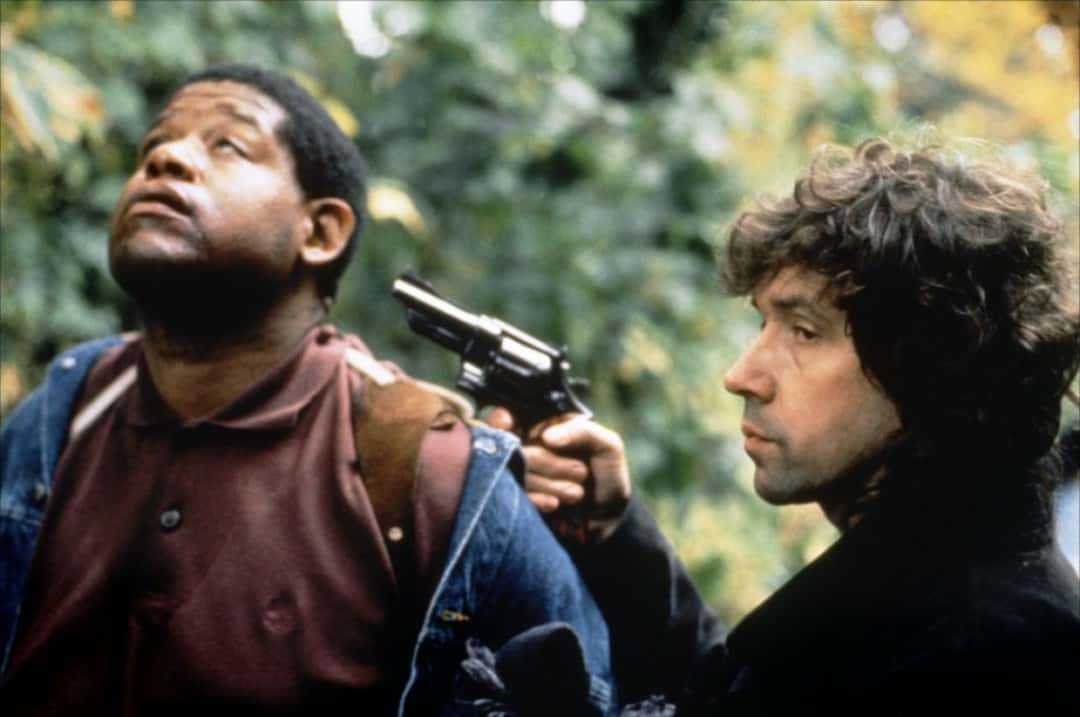
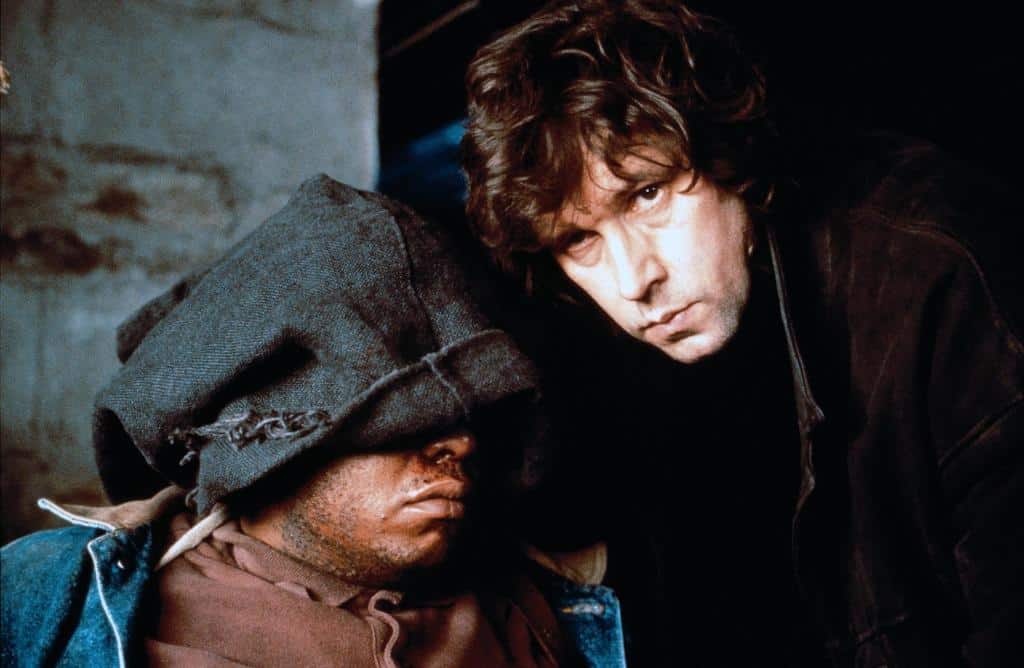
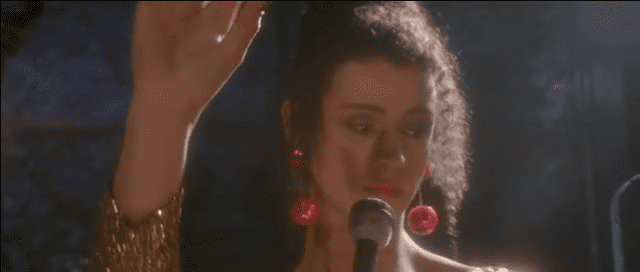
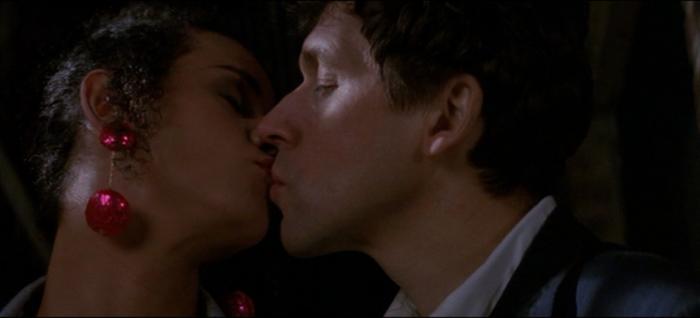
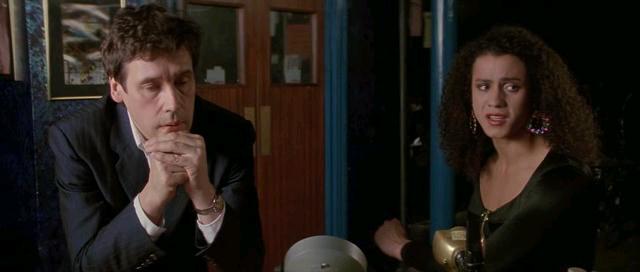
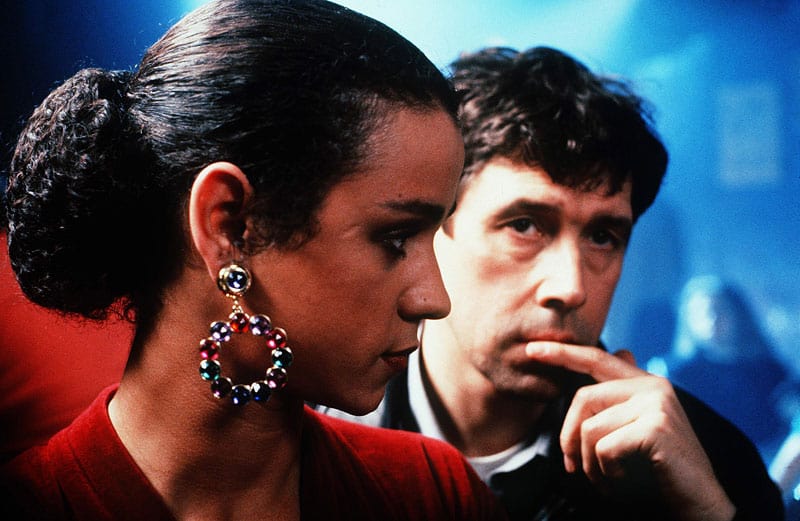
The Crying Game is my all-time favorite movie for the same reasons you have in your terrific article!
Oh for sure.you nailed it!